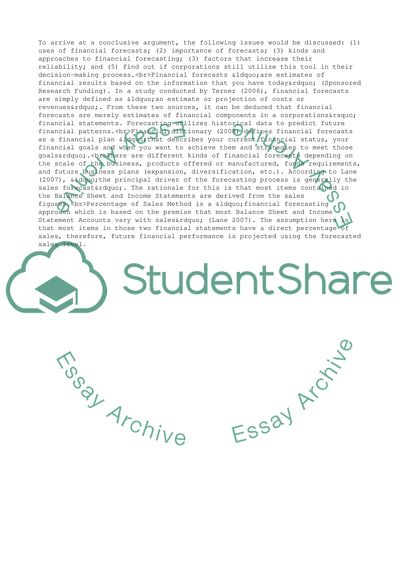Cite this document
(Financial Forecasts in Predicting Future Performance Essay - 2, n.d.)
Financial Forecasts in Predicting Future Performance Essay - 2. Retrieved from https://studentshare.org/business/1720819-final
Financial Forecasts in Predicting Future Performance Essay - 2. Retrieved from https://studentshare.org/business/1720819-final
(Financial Forecasts in Predicting Future Performance Essay - 2)
Financial Forecasts in Predicting Future Performance Essay - 2. https://studentshare.org/business/1720819-final.
Financial Forecasts in Predicting Future Performance Essay - 2. https://studentshare.org/business/1720819-final.
“Financial Forecasts in Predicting Future Performance Essay - 2”, n.d. https://studentshare.org/business/1720819-final.


